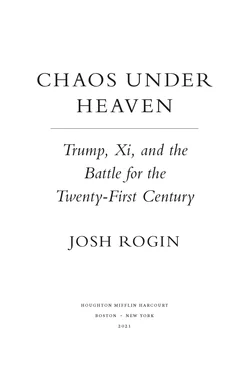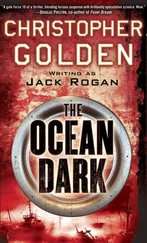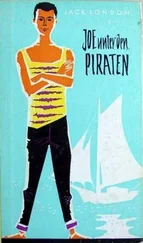Chinese officials tried to go see Papua New Guinea’s foreign minister in his office, to persuade him to intervene on their behalf. The foreign minister refused to see them, so the Chinese officials literally busted into the foreign minister’s office and he had to call the local police to force them out. Back at the conference hall, Chinese officials were entering uninvited into meetings of the smaller countries, to demand they toe Beijing’s line.
“This is becoming a bit of a routine in China’s official relations: tantrum diplomacy,” a senior US official involved in the negotiations told me at the time. “Them walking around like they own the place and trying to get what they want through bullying.”
Xi and Pence were set to give the last two speeches in the public-facing side of the event. The speeches were being held on a cruise ship docked off the coast of Port Moresby, for security reasons. The international media was following it from a tent on shore. But when Pence started speaking, the internet in the international media center suddenly shut off, meaning the journalists couldn’t cover the speech in real time. When Pence was finished, the internet mysteriously started working again.
Pence’s staff was getting increasingly frustrated by the Chinese delegation’s childish behavior, but they had a more pressing concern. Just hours before Pence was about to speak, Trump had made some comments on China in the Oval Office, totally oblivious to what Pence was up to on the other side of the world. Pottinger and Ford were furiously trying to work those comments into Pence’s speech until the last minutes.
Here’s how it came out:
As President Trump said just a few hours ago in the Oval Office, we have “great respect for President Xi . . .[and] great respect for China.” But, in the president’s words, “China has taken advantage of the United States for many, many years.” And those days are over.
As the president has added, China has “tremendous barriers”; they have “tremendous tariffs”; and, as we all know, their country engages in quotas, forced technology transfer, intellectual property theft, industrial subsidies on an unprecedented scale. Such actions have actually contributed to a $375 billion good trades deficit with the United States last year alone. But as the president said today, “that’s all changed now.”
Pence was mashing together the official policy and the ongoing diplomatic negotiations in Port Moresby with Trump’s utterances, in real time. It kind of made sense, but it kind of didn’t. Trump was sending mixed signals and Pence was pretending they all fit together perfectly. Nobody could blame the audience for being confused.
When Pence finished speaking, there was scattered light applause. Pence was stunned. Why wouldn’t the crowd be receptive to this tough-on-China, “America is here to stay” messaging? He found out later the Chinese delegation had maneuvered to scoop up all the tickets for the live audience and packed it with Chinese businesspeople. Their attention to detail in their mischief had to be admired.
On the final day, Pottinger worked with his Chinese counterparts to try to get consensus on the APEC joint statement. The Chinese delegation refused to budge. The vote was 20 to 1, with every country except China supporting the statement. But without consensus, the statement failed. As the leaders voted, the Chinese delegation watching through glass in an adjacent room broke out in cheerful applause. For China, America’s failure was its roaring success.
The Buenos Aires Disaster
All of the hard work Pence, Bolton, and Pottinger had put into devising and then announcing America’s new and tougher strategic approach to China was completely undermined only days later, when Trump traveled to Buenos Aires for the G20 summit and his next big meeting with Xi. This was also when national security officials and the trade team clashed, when Canadian officials, on behalf of the US Justice Department, arrested the CFO of Chinese telecom giant Huawei, Meng Wanzhou, the daughter of the founder and CEO, Ren Zhengfei.
Bolton admits in his book that he was alerted by Justice Department officials that Meng might be arrested the day before, but he decided not to tell Trump about it because it struck him as “straightforward” and he didn’t want to bother the president until he had “all the facts.” The news broke as Trump was sitting down to dinner with Xi. Afterward, Trump was angry he hadn’t been told. Press Secretary Sarah Sanders called over to the Justice Department to ask them whether they had purposely withheld this information. The Justice Department said they had informed the NSC. Trump later complained that we had arrested “the Ivanka Trump of China.”
Meng’s arrest was based on an indictment for Huawei busting US sanctions on Iran. The evidence was strong, but that wasn’t the point. Arresting a senior Chinese executive at this level on criminal charges for actions taken by the corporation was unprecedented. Using law enforcement tools at this senior level was an escalation that clearly had diplomatic and political implications. It would have been inconceivable in any normal administration for such a move to be made without the most senior White House officials involved or at least aware, particularly during a summit where the United States and Chinese presidents were set to meet.
Larry Kudlow was telling the truth when he told Fox News the next day that Trump didn’t know about the arrest until after the dinner. The Justice Department move was covered in the press as “threatening a resolution to the U.S.-China trade war.” In fact, it was the opening salvo of the US-China tech war. Were those two things linked? Of course. Was linking them deliberate? Well, that depends on who was doing the linking and at what point.
Xi Blames Canada
Xi tried to link easing pressure on Huawei to the trade negotiations at several points. From Xi’s perspective, the linkage made sense. He took two Canadians hostage, arresting them on trumped-up charges, as leverage over Justin Trudeau while Meng litigated in Canadian courts to prevent being extradited to the United States. It backfired. Trudeau could never make such a trade because the politics in Canada wouldn’t allow what was basically an abandonment of rule-of-law principles for political expediency.
But for Trump that was totally something he might do. Therefore, it was something the people inside his own government had to worry about. Their worries were not unfounded. My Washington Post colleague Ellen Nakashima heard from her sources that Mnuchin’s chief of staff, Eli Miller, had initiated a quiet effort to negotiate a trade whereby Meng’s charges would be dropped or reduced in exchange for Huawei accepting some other type of corporate punishment. Miller met with Chinese officials outside the government process, with Mnuchin’s tacit approval. The deal never got done.
Bolton wrote that Mnuchin “fretted constantly” about the Justice Department’s criminal prosecutions of Chinese officials and corporate entities and that Trump implied Huawei could be a bargaining chip in the trade negotiations “on several occasions.” He said Trump saw it as a telecom company, the Justice Department saw it as a criminal organization, and Bolton saw it as an arm of the Chinese intelligence apparatus.
All of them were correct; Huawei was and is all of those things. Over the next year, Trump would repeatedly offer to include Huawei in the trade talks. Again, he was mixing national security and economic dealmaking to Beijing’s advantage. The result was a policy that lurched back and forth, with the United States punishing Chinese tech companies only to have the president give them a reprieve, leaving much of the world confused.
Читать дальше











